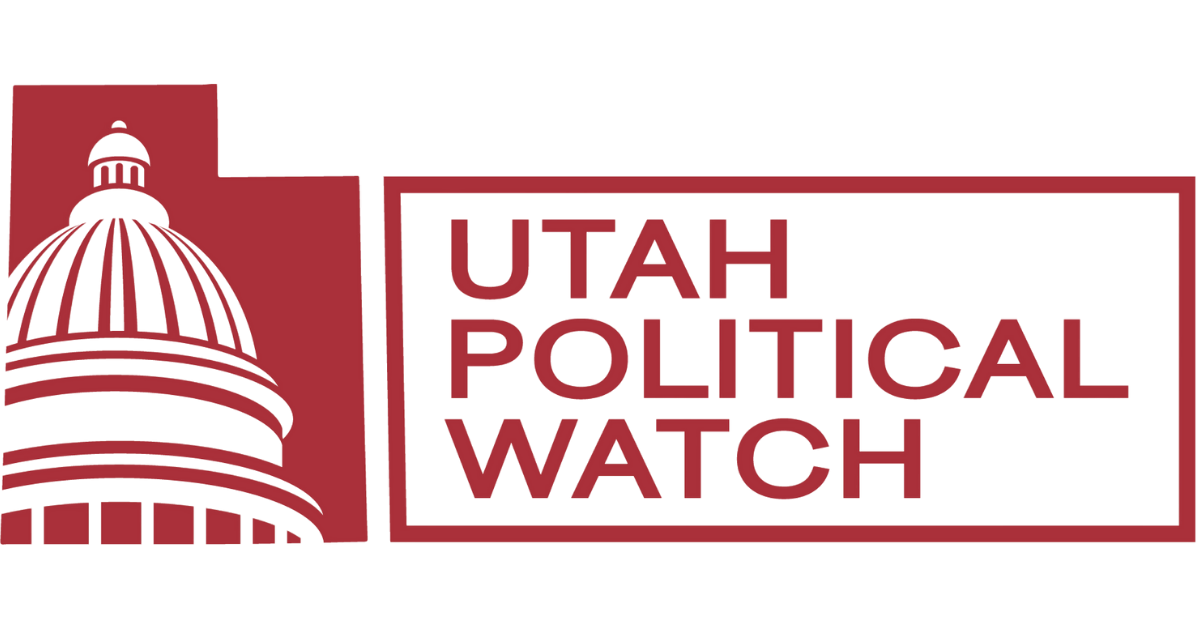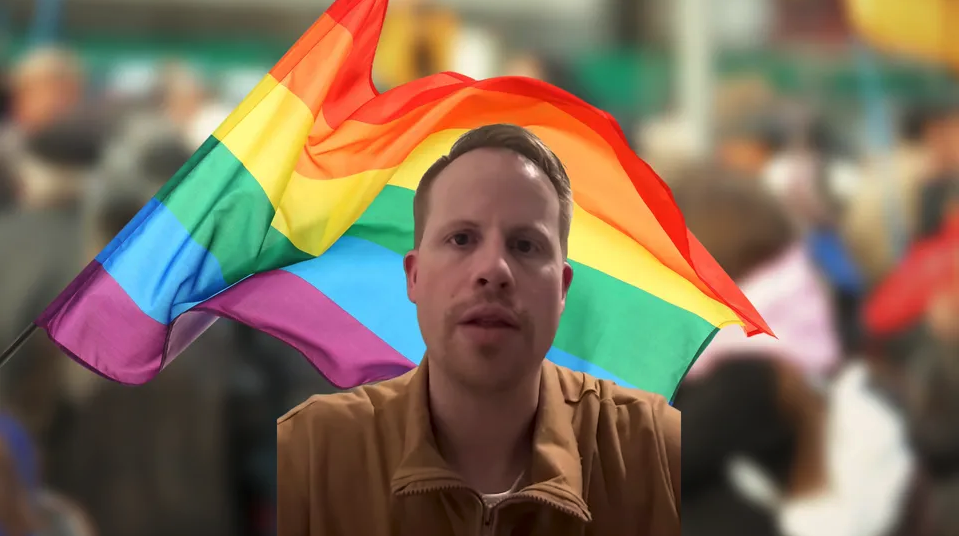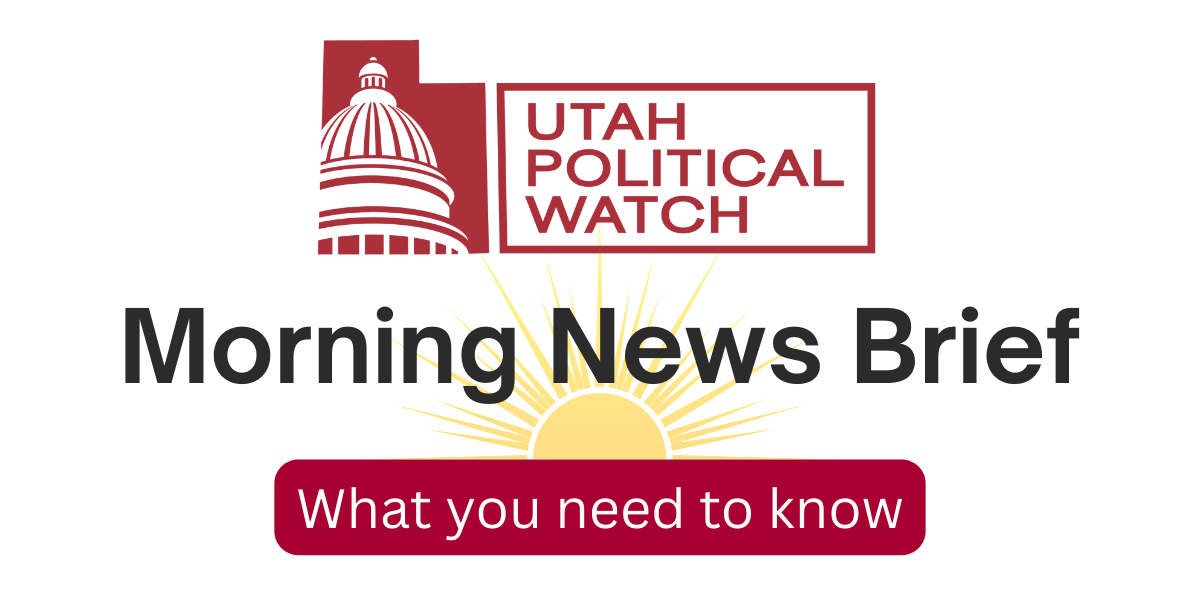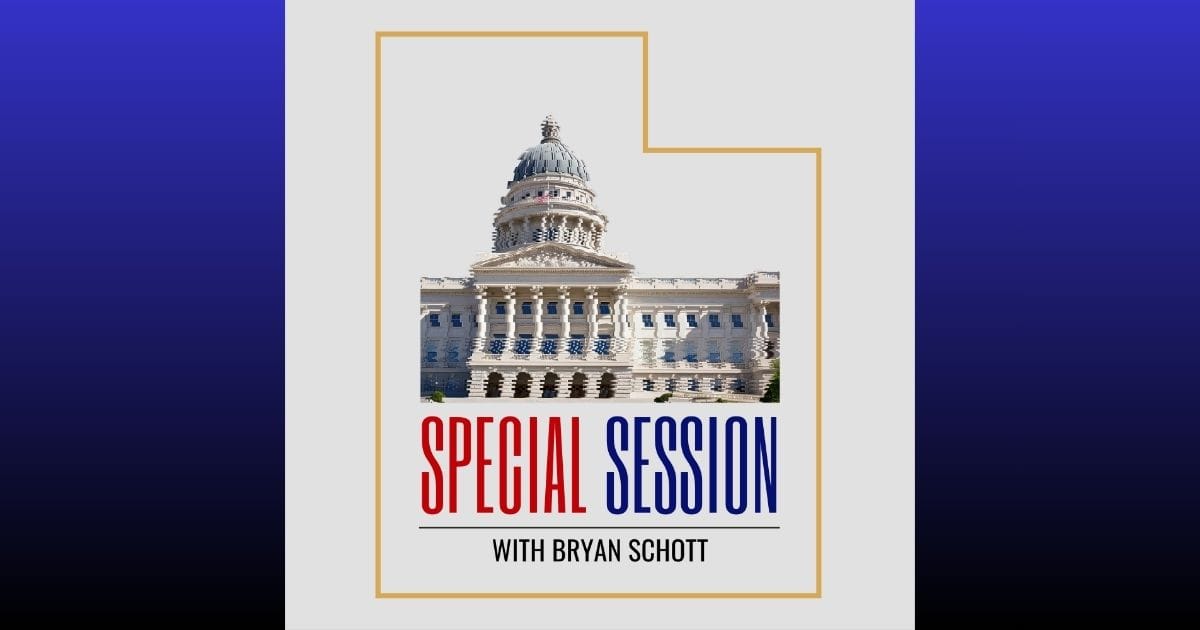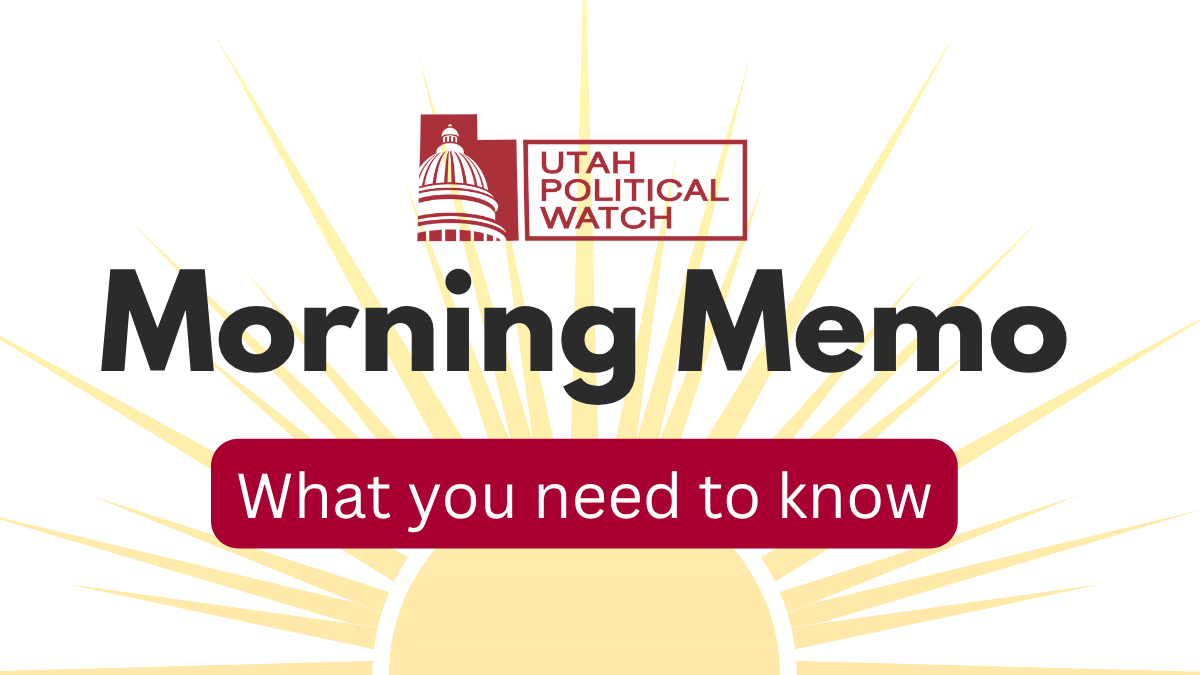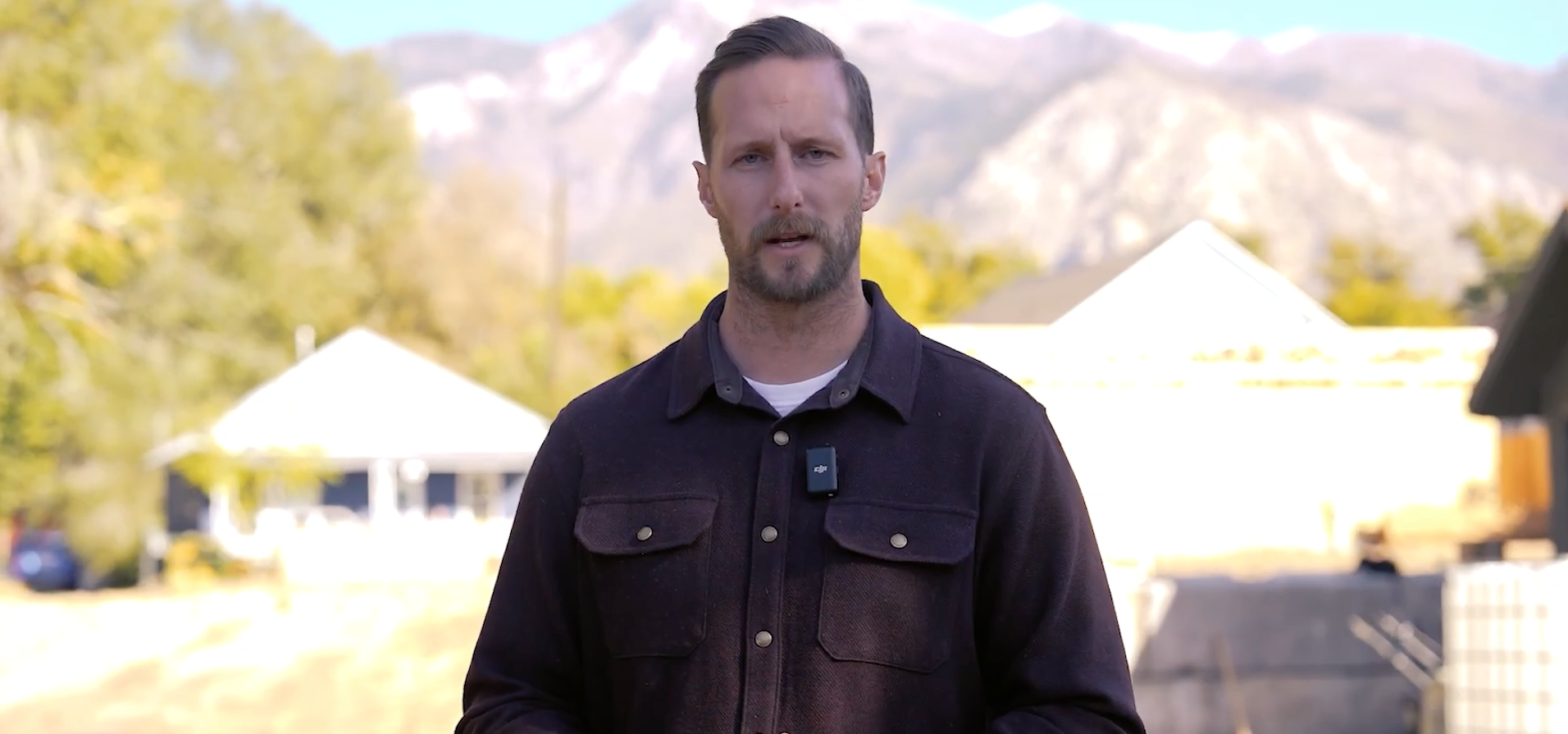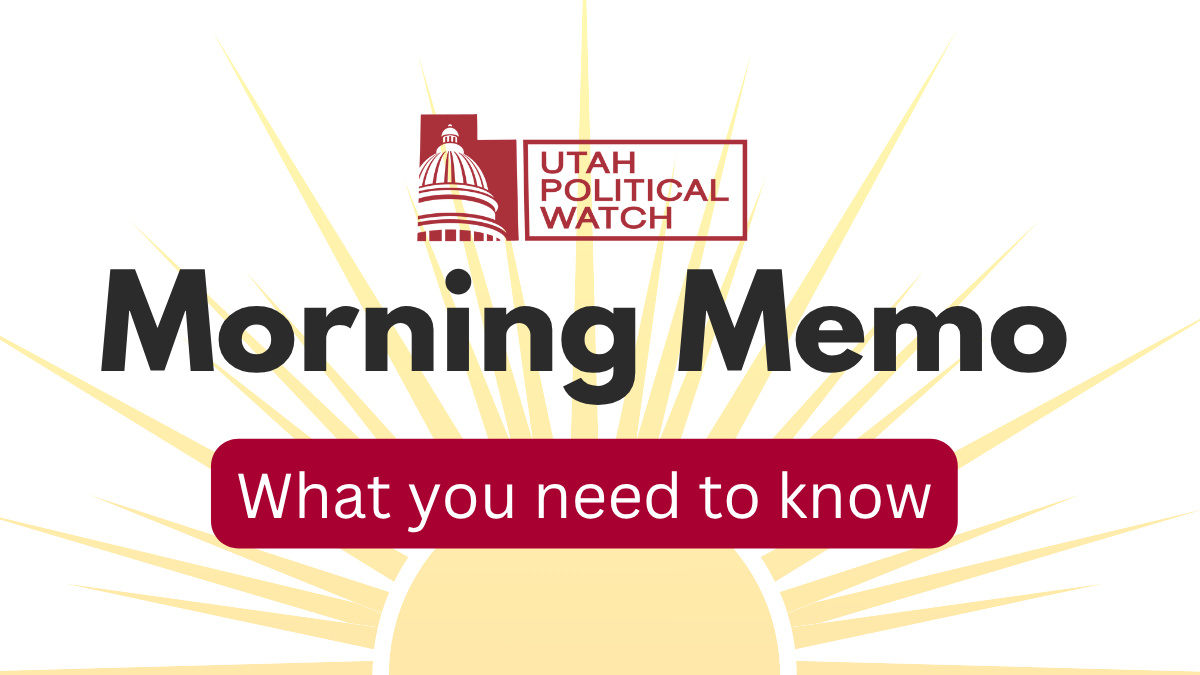Fresh off his successful push to ban Pride flags from Utah classrooms, State Rep. Trevor Lee has a new target in his sights: private organizations that receive public funding. His latest proposal would restrict these organizations from displaying Pride symbols or celebrating LGBTQ events – a move constitutional experts warn would likely violate the First Amendment.
Lee took to social media on Sunday to complain about the NHL’s Utah Mammoth posting a Pride-themed version of its logo.
Utahns overwhelmingly don’t support pride month.
— Trevor Lee (@VoteTrevorLee) June 1, 2025
We are the most kind people in the world and are taken advantage of because of that kindness.
Nothing makes Utahns more mad when political ideologies get pushed into their lives. And even worse, having taxes prop up these… https://t.co/NzjUn52xVv
“Utahns overwhelmingly don’t support pride (sic) month,” Lee proclaimed, offering no evidence to support his claim.
“Nothing makes Utahns more mad when political ideologies get pushed into their lives. And even worse, having taxes prop up these ideologies. Watch for some significant legislation this next session that pushes back onto these woke groups!”
In 2024, Utah lawmakers approved nearly $1 billion in taxpayer funds for the Smith Entertainment Group, owners of the Utah Mammoth and Utah Jazz. The funding package, for Delta Center upgrades and surrounding area renovations, is what Lee wants to leverage to push for new restrictions.
Appearing on a Utah conservative talk radio show Tuesday, Lee argued that accepting public money should require "political neutrality" from private companies – a requirement that would effectively ban Pride celebrations and similar expressions
“This is just like the flag bill,” Lee said.
“When the Smith Entertainment Group is going to be receiving close to a billion dollars from taxpayers, that’s no small amount of money, that is where I have some serious issues. If they want to be a private company and group, they can do what they want, but the minute they take taxpayer money, that is our money going to fund their agendas,” Lee added.
Lee dismissed concerns about his proposal: “I don’t think it’s a threat to say that they need to have some restrictions or some strings with this money that we’re giving them.”
But legal experts strongly disagree, warning that what Lee is proposing threatens fundamental First Amendment protections.
While any legislation ultimately depends on how it’s written, Katie Fallow, Deputy Litigation Director at the Knight First Amendment Institute at Columbia University, explains that the course of action described by Lee would almost certainly violate the First Amendment.
“Lee is proposing a bill that would require the company that owns the Utah Mammoth and Jazz to restrict their speech in order to conform to the government’s viewpoint. The First Amendment forbids the government from trying to control the speech or viewpoints of private companies through the threat of withholding funds, or by making the availability of funding dependent on the companies speaking in a way the government prefers,” Fallow explains.
Fallow points to last year's Supreme Court ruling in Moody v. NetChoice, LLC, which established that "a State may not interfere with private actors' speech to advance its own vision of ideological balance."
Carolyn Iodice, Legislative and Policy Director for the Foundation for Individual Rights and Expression (FIRE), emphasizes that government funding cannot be wielded as a tool to suppress expression.
“The fact that the government is choosing to subsidize an arena for the team does not grant the government any right to ban it from creating a logo for pride month — or for Christmas, the Fourth of July, or anything else. The First Amendment protects your right to take ideological viewpoints, and it's well-established that you don't lose that right when you receive money from the government,” Iodice says.
Despite Lee's claims of pursuing "political neutrality," his legislative record tells a different story. Earlier this year, he successfully shepherded HB77 through the legislature, making Utah the first state to ban Pride flags in classrooms and public buildings.
In March, during a meeting of the far-right Utah Citizens for the Constitution, Lee said the main thrust of HB77 was “to make sure during Pride month in Salt Lake City that you’re not able to fly Pride flags all over the place, which is something people are sick and tired of.”
HB77 was allegedly one of the reasons organizers of the Sundance Film Festival decided to leave Utah after its contract ends in 2026.
During Tuesday’s radio interview, Lee insisted his latest effort stems from fiscal responsibility, not discrimination.
Lee’s claim of impartiality toward the LGBTQ community rings hollow in light of his extensive history of public anti-LGBTQ rhetoric.
- When he first ran for the Utah Legislature in 2022, Lee was behind an anonymous Twitter account that posted hateful and anti-LGBTQ content.
- That same year, Lee used transphobic slurs during an appearance on a conservative podcast.
- In 2023, Lee attacked the Utah Transit Authority on social media over a post highlighting a Pride-themed bus.
“Rep. Lee’s outrage over rainbow logos isn’t about policy — it’s about erasing LGBTQ+ people from public life”, said Ellie Menlove, Director of Policy for the ACLU of Utah. “It’s a calculated abuse of power, dragging Utahns deeper into a state of censorship. It may seem to start with one group, but it puts everyone’s freedom and free speech at risk.”
